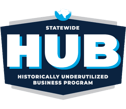How Can We Transform Outpatient Pharmacy Safety Through Data, Culture, and Accountability?
In this installment of our Healthcare Affirmations series, we're spotlighting Audrey Kostrzewa, PharmD, MPH, Professor of Pharmacy Practice and Medication Utilization Pharmacist, whose dual role in academia and health systems bridges the gap between teaching the next generation and tackling one of pharmacy's most pressing challenges: systematic safety in outpatient settings.
Read More
Topics:
Rhazdrugs,
Policy,
USP <800>,
Technology,
NIOSH
Last year at this time, we were reflecting on one year of USP <800> enforcement. Little did we know that NIOSH would release an updated list of hazardous drugs and also a new format consisting of two main tables. Welcome to 2025!
Read More
Topics:
Rhazdrugs,
Policy,
USP <800>,
Technology,
NIOSH
Every day, nurses make thousands of judgment calls that shape safety at the bedside. In this installment of Healthcare Affirmations, we’re spotlighting Leah, an Oncology Nurse Educator at mid-sized healthcare system on the East Coast, whose work turns complex safety policies into usable action for frontline teams.
Read More
Topics:
Rhazdrugs,
Policy,
USP <800>,
Technology,
NIOSH
In this installment of our Healthcare Affirmations series, we’re spotlighting Erica Bane, System Medication Safety Officer at a large healthcare system, whose career journey took her from the operating room to overseeing medication safety across an entire health system.
Read More
Topics:
Rhazdrugs,
Policy,
USP <800>,
Technology,
NIOSH
When we first set out to reduce exposure to hazardous drugs, our work centered on our trusted PharmD partners. Over the past five years, as we’ve helped health systems comply with USP <800> and protect their workers, one truth has become clear: nurses play a critical role in keeping everyone safe.
Read More
Topics:
Rhazdrugs,
Policy,
USP <800>,
Technology,
NIOSH
The overall turnover rate for oncology nurses is approximately 27%, which jumps to up to a staggering 40% among early-career nurses in their first or second year, according to a podcast by the Oncology Nursing Society (ONS).
Read More
Topics:
Rhazdrugs,
Policy,
USP <800>,
Technology,
NIOSH
A recent Rhazdrugs implementation sparked a valuable discussion about how and why certain drugs end up on hazardous drug lists.
Read More
Topics:
Rhazdrugs,
Policy,
USP <800>,
Technology,
NIOSH
Remember 2004? Shrek 2 was breaking box office records, we were all singing "Yeah!" by Usher, and Facebook was just getting started. That same year, NIOSH published its first list of hazardous drugs in healthcare settings. It was a sample list of 34 drugs that would (slowly) grow into the list of 236 drugs NIOSH released in 2024.
Read More
Topics:
Rhazdrugs,
Policy,
USP <800>,
Technology,
NIOSH
Did you catch the blog Laura wrote recently about our time in Transylvania? If not, check it out! One thing our long flights and car rides afforded us was the time to catch up on our reading list.
Read More
Topics:
Rhazdrugs,
Policy,
USP <800>,
Technology,
NIOSH
We hope your summer has brought a mix of adventure, meaningful time with family and friends, and opportunities for professional growth. And dare I say we hope you’ve had a minute to unplug and read some great books or watch some new shows? For members of the Rpharmy team—John, Caroline, and I—it’s been all of the above. We recently traveled to Romania for an exciting first: meeting our talented team of product developers and business analysts in person.
Read More
Topics:
Rhazdrugs,
Policy,
USP <800>,
Technology,
NIOSH











